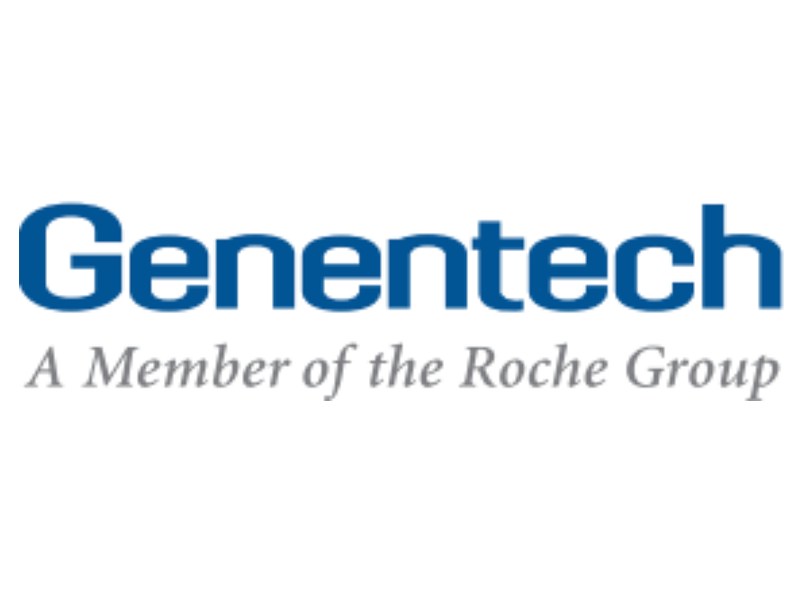FDA Approves Genentech’s Gazyva for Previously Untreated Advanced Follicular Lymphoma

Genentech, a member of the Roche Group (SIX: RO, ROG; OTCQX: RHHBY), announced today that the U.S. Food and Drug Administration (FDA) approved Gazyva®(obinutuzumab) in combination with chemotherapy, followed by Gazyva alone in those who responded, for people with previously untreated advanced follicular lymphoma (stage II bulky, III or IV). The approval is based on results from the Phase III GALLIUM study, which showed superior progression-free survival (PFS) for patients who received this Gazyva-based regimen compared with those who received a Rituxan® (rituximab)-based regimen as an initial (first-line) therapy. Follicular lymphoma, the most common slow-growing (indolent) form of non-Hodgkin’s lymphoma (NHL), is incurable and becomes harder to treat each time it returns.
“Today’s Gazyva approval is an important advance for the thousands of people diagnosed each year with follicular lymphoma who hope to delay disease progression for as long as possible,” said Sandra Horning, M.D., chief medical officer and head of Global Product Development. “We’re pleased we can now offer patients with this incurable blood cancer an initial treatment option shown to improve upon Rituxan, the standard of care in this setting for more than 10 years.”
The GALLIUM study showed the Gazyva-based regimen significantly reduced the risk of disease worsening or death compared to a Rituxan-based regimen by 28 percent (PFS as assessed by independent review committee [IRC]; HR=0.72; 95 percent CI 0.56-0.93; p=0.0118). The most common Grade 3-5 side effects (occurring in at least 5 percent of patients) observed more frequently in the Gazyva arm were low white blood cell count, infusion reactions, low white blood cell count with fever and low platelet count. The most common side effects (occurring in at least 20 percent of patients) observed at least 2 percent more frequently in the Gazyva arm included infusion reactions, low white blood cell count, upper respiratory tract infection, cough, constipation and diarrhea.
Gazyva’s supplemental Biologics License Application based on the GALLIUM data was granted Priority Review, a designation given to medicines that the FDA has determined to have the potential to provide significant improvements in the treatment, prevention or diagnosis of a disease. With this approval, Gazyva is available in the United States for three different indications across two common types of blood cancer.
About the GALLIUM Study
GALLIUM (NCT01332968) is a global Phase III open-label, multicenter, randomized two-arm study examining the efficacy and safety of Gazyva plus chemotherapy followed by Gazyva alone for up to two years, as compared head-to-head against Rituxan plus chemotherapy followed by Rituxan alone for up to two years. Chemotherapies used (CHOP, CVP or bendamustine) were selected by each participating study site prior to beginning enrollment. GALLIUM included 1,385 patients with previously untreated non-Hodgkin’s lymphoma (NHL), of whom 1,202 patients had advanced follicular lymphoma (stage II bulky, III or IV). Efficacy results in follicular lymphoma with a median observation time of 38 months were the following:
|
Treatment arm |
Gazyva + chemotherapy (N=601) |
Rituxan + chemotherapy (N=601) |
|
Median PFS* (primary endpoint) |
Not reached (NR) |
NR |
|
HR=0.72; 95% CI 0.56-0.93, p=0.0118 |
||
|
Overall Response Rate** (ORR, secondary endpoint) |
91% |
88% |
|
Complete Remission Rate** (CR, secondary endpoint) |
28% |
27% |
*As assessed by IRC; investigator-assessed PFS was consistent with these data
**After completion of combination therapy, assessed by CT without PET
Safety was evaluated based on 1,385 patients with previously untreated follicular lymphoma (86 percent) or marginal zone lymphoma (14 percent). The most common Grade 3-5 side effects that occurred more often with Gazyva plus chemotherapy followed by Gazyva alone compared to Rituxan plus chemotherapy followed by Rituxan alone were low white blood cell count, infusion reactions, low white blood cell count with fever and low platelet count.
About Follicular Lymphoma
Follicular lymphoma is the most common slow-growing (indolent) form of non-Hodgkin’s lymphoma (NHL), accounting for about one in five cases of NHL. It is considered incurable and characterized by periods of remission and relapse. The disease typically becomes harder to treat each time it returns, and early progression can be associated with poor long-term prognosis. In the United States, it is estimated that more than 14,000 new cases of follicular lymphoma will be diagnosed in 2017.

